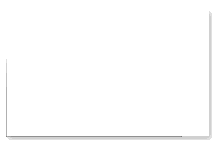五、數位資料保護
(三)數位資料之智財權保護措施
Google 為何能在網路世界中取得龍頭的地位,就是因為Google能掌握商機,開發新的服務。Google看見了未來數位圖書館的龐大商機,因此在2004年率先推出Google Print計畫,主要目的就是希望人們能夠利用網路就能取得消失已久的書籍知識。Google一開始所推出的為出版商計畫「Google Publisher」,它是一項由出版商自行提供書籍讓Google掃描全文的專案。對出版商而言,這是一種「同意才加入(opt-in)」的模式,此模式獲得了出版商熱列的回應,爾後Google發現,如果僅靠出版商提供,他們頂多蒐集不超過15%的已出版物,因此Google又開始轉向圖書館合作,推出圖書館計畫「Google Library」,針對公共無權版圖書及目前仍有版權圖書進行掃描並開放線上搜尋。為了防止發生肆虐影音產業的檔案分享行為,Google針對圖書計劃設定了一些限制:使網路用戶無法便利地列印資料;有版權的著作一次只能讀到5頁,重複搜尋累計亦不得超過20%篇幅。但屬公用性之圖書,則無篇幅限制。Google選擇了五大圖書館為合作對象,包括哈佛大學、密西根大學、斯坦福大學、牛津大學及紐約公共圖書館等,由於每個圖書館的合作情況不同,所以與 Google 簽訂的合約內容也不完全一樣,以下將舉例Google與牛津大學圖書館合約之內容重點(完整合約內容詳見附件):
#Google’s mass-digitization plans(計畫主旨)
* 僅提供大量已絕版書籍供 Google 數位化
* 以OCR製作出的全文都會加上索引,方便從 Google Search 及 Google Print 做全文的檢索
* 提供世人可經由網路取用這些長久以來難得看到的紙本書籍
* 從學術及公眾的利益角度來看,可以把牛津大學的content帶到數位化的領域
* 可以擴充牛津大學的數位資源
#The Oxford-Google agreement: principal terms and conditions(合作內容)
* 與 Google 的合約為三年期,之後再更新合約
* 由Google在牛津大學校內租用辦公室來進行數位化的工作
* 差不多所有的費用支出都由Google支應
* 牛津大學所要付出的成本是: 找一位專案管理者及選擇要數位化的書籍
* Google及牛津大學會各自保留一份數位化的成品,並可自行的去運用(free to exploit non-exclusively)
#The Oxford-Google agreement:down-the-line possibilities
* 與其他圖書館分享全文資源
* 支援數位保存及館際互借活動
* 針對某些書籍而言,可以省下原本實體書籍保存的空間及成本
但這項計畫推出以來,一直受到質疑,「Google Library」計畫是在取得取得圖書館的同意,但是不必需取得出版者同意的情況下,與特定圖書館合作掃描書籍的專案,是採「同意才退出(opt-in)」的模式。雖然Google強調整個計畫的重點是要把絕版(out of print)、屬於公共財產(public domain)以及不在著作權法保護範圍的書籍電子化,如果是受著作權法保護的書籍,使用者就只能閱覽書本中和關鍵字相關的零碎段落(除非版權商特別授權),但態度相對保守的實體出版業者卻還是有相當多的反彈聲音,因為各大學圖書館的館藏圖書,其版權仍然屬於原出版社和作者所有,因此Google於2005年8月暫停了掃描工作,並要求出版商於11月前提供不願意掃描而公開到網站上的書籍清單,但出版商普遍認為,這種作法等於將保護版權的責任轉移到版權所有者和著作權人的身上,根本不符合著作權法規定和精神,並不是解決問題的積極作法,引起美國出版商協會(Association of American Publishers)及美國作家協會(Authors Guild)的不滿,因而提出訴訟。其中美國作家協會有8000多名作家成員,是美國最大的出版作家組織,為此甚至要求Google為每一次侵權支付賠償,並請求法院禁止該公司未支付費用就拷貝受版權保護的圖書內容。
二大組織其主要訴訟之論點綜合如下:
1. Google 對出版社所提出的「同意才退出(opt-out)」政策,違反了受著作權保護的作品重製的例常擔當。Google應當先尋求其允許,即以「同意才加入 (opt-in)」代替「同意才退出(opt-out)」。
2. 即使Google 只呈現受著作權保護作品的片段,可是每個檢索都會出現一部份的片段。自動檢索系統還是有可能自動整合些這片段,成為完整的部分。
3. 為了提供索引與資料片段,Google 將必須重製全文。傳統合理使用只限於重製內文一小部份。
4. Google 將會因為其重製與索引的內容獲利。(從其檢索結果頁面提供的廣告內容。) 這是屬於商業利用。
Google 主要回應的論點為:
1. Google 索引將有助於書籍銷售。這不應只是一個法律意義上的附註而已。這是法律所認可的合理使用。
2. Google 將只呈現受著作權保護書籍的部分內容。每一個不同的合理使用片段可能被他人拼湊成完整的部分,但是每一種合理使用也都有相同的問題。如果使用者真的想要取得全文,到公共圖書館會比檢索各個片段再把它們拼在一起更容易。
3. Google 需要為了提供索引與片段而重製全文。但是Google仍然只能呈現部分內容。
4. 「同意才退出(opt-out)」在網路內容索引技術中是被認可的標準做法。如果搜尋引擎必須在索引受著作權保護的內容前,先求得著作權所有人的同意(即,opt-in 取代 opt-out),那麼所有的搜尋引擎都不可能有效的運作下去。
5. 上述的第四個論點即說明Google Library 的重製是受合理使用所保護的。這是本有的重要權利,但也與其他一樣重要。如果其重製是屬於合理使用,那麼即不需要先取得同意。如果可以不先取得同意,那麼「同意才退出(opt- out)」是一個最佳的可接受方案。
6.Google會因為這些重製而獲利。但是也是因為來自於由資訊收集程式(crawler)在線上所收集的全文副本與著作權內容索引所獲利的。再者,販賣合理使用內容旁邊的廣告獲利與販賣重製副本獲利是非常不同的,有時Google並無行為意圖。雜誌與期刊也可以引用合理使用的內容片段,並且靠銷售同一頁面的廣告獲利,這也並不違反著作權法律。
Google之所以理直氣壯,主要是憑藉著美國現行著作權法中的「公平使用原則」(fair use doctrine),所謂的「公平使用原則」是指使用人在法律規定的條件下,不必取得版權人的同意,也不必向其支付報酬 基於正當目的而使用他人版權作品的合法行為。在這種制度的規定下,只要是為了學習、評論、教學、研究、保存等,都屬於合理使用的範疇。
雖然Google的作法備受爭議,但數位圖書館的構想卻引發一陣跟風。包括亞馬遜、Yahoo、微軟及藍燈書屋等大型企業皆紛紛投入此一領域。
1. 全球第一大入口網站雅虎正式宣佈與奧多比(Adobe)、與惠普(HP)等多家知名企業與非營利組織共同組成開放內容聯盟(Open Content Alliance, OCA),成員包括非營利性的Internet Archive、加州大學及多倫多大學的圖書館、科技供應商惠普、Adobe系統公司等。OCA將開始掃瞄已無版權限制的書籍,或是從版權限制較寬鬆的Creative Commons取得授權的書籍,然後免費在線上供搜尋、運用。然而有了Google的前車之鑒,Yahoo的策略明顯的溫和許多,例如OCA初期僅針對版權已經過期的圖書進行索引與資料庫的建立,更重要的是,OCA的經營與運作將交由一家位於三藩市的非營利組織-網路檔案(Internet Archive)進行。OCA和Google的資料庫儘管有許多相似之處,但差別仍在於,以有版權的內容而言,前者只接受出版商「志願加入」的部分,後者則只排除出版商「志願退出」的部分。
2. 軟體界的龍頭老大微軟公司也宣佈正式加入OCA聯盟,成為此聯盟的一員,預計對大英圖書館進行數位化並會將此專案的合作成果,與自家即時通訊服務MSN整合,於明年推出書本搜尋(Book Search)服務。
3. 亞馬遜就推出了兩個新型的數位圖書服務產品——“亞馬遜書頁(Amazon Pages)和亞馬遜升級(Amazon Upgrade)。Amazon Pages使用者只需要支付幾美分,就可以購買到書籍的單頁或者是部分章節,價格由出版商自行決定,第2種則是讀者可以在購買實體的書籍之後,付出約10分之1的金額,購買永久線上閱讀數位化電子版本。
4. 美國最大出版書商藍燈書屋(Random House)也計畫在未來和搜尋引擎或是入口網站合作,以單頁計價(pay per page)的方式讓讀者線上閱讀書籍。
出版商控告Google的案件,許多法律顧問表示,各自的勝算都不相上下,因為模糊的版權法律留下了大量的爭論空間,而且沒有先例可循,這使得Google和出版商之間的這場恩怨預計在二年後才會有審判結果。針對提供數位化書籍所衍生的問題,主要是發生在版權的擁有者可以任意的處置自己著作的版權,並選擇賣斷或是部份授權的方式,不過目前在網路提供數位書籍下載或觀看,所面臨到最大問題則是,就算內容供應商另外付錢給作者,也只代表這個供應商本身擁有這本書,而不代表可以公開給所有人下載。本項計畫引發的疑慮在於數位科技對著作權可能造成的侵害。科技的發展使公眾利用圖書館不需再侷限於特定地點及時間,藉由數位化網路科技的協助,「數位化圖書館」可以使世界上任何一個使用者,不必在圖書館的開放時間內,親自到圖書館,就可以透過網路的方式進入數位元化圖書館,搜尋及取得其所需的資訊,全文下載列印或轉成電子檔案儲存,由於有這些方便性,使得Google的數位化圖書館計畫雖然遭遇訴訟之威脅,然而不僅沒有使Google退縮,甚至連Google的競爭對手雅虎、微軟的MSN、Internet Archive也公佈了類似的圖書數位化計畫。
數位圖書館的確提供了民眾在取得資訊上極大的便利,但也相對的影響到資料庫業者、出版社及書店的生存以及著作權人權利之保護,如何能在公眾利益及著作權之保護間尋求平衡,或許可以考量以立法的方式,在著作權法內特別加以規範,更重要的是數位圖書館已經是一個國際趨勢,我們更需要配合國際的間作法以維持各自的權益,才能夠更合理規範數位化圖書館所可能產生的著作權保護之問題。
附 件
Oxford-Google Digitisation Agreement
After more than a year of discussions and negotiations, the University of Oxford has concluded a mass-digitisation agreement with Google, Inc., of Mountain View, California, which should lead, over the next three years in the first instance, to the digitisation of more than 1 million of the Bodleian Library’s printed books, and their worldwide availability on the Internet, through Google’s popular search services and the Oxford website.
Because of copyright restrictions and intellectual property issues, the agreement between Google and Oxford covers only ‘public domain’ materials (i.e. printed books for which the copyright has expired - principally, books published before 1920), and it will involve the establishment in Oxford, by Google, of a digital scanning and processing unit.
The scanning operation will lead to the creation of two digital copies of each book: one for Google, and one for Oxford. The Google copy will be fully indexed and searchable through the Google search service, while the Oxford copy will be linked directly to the relevant catalogue record in the Oxford Libraries Information Service (OLIS). For Google, this will represent a major enhancement of the quality and range of the information discovered and presented by its Internet-based services. In Oxford, the addition of so many electronic books, from the University’s own collections, to its web-based library resources will not only provide a major increment in library service for users, but will also represent a significant step forward in the long-term aims of the Oxford University Library Services (OULS) in developing a ‘virtual library’ based on its incomparable physical collections.
The printed collections of the OULS (consisting of the principal central libraries of the University of Oxford) number in excess of 11 million volumes, and they represent one of the largest university library collections in the world. The OULS holdings are of primary interest and importance to the scholars and students of the University; but the electronic availability of a substantial and growing proportion of these items will serve not only study and scholarship in Oxford, but also the whole worldwide community of the literate and of the information-hungry. In line with Sir Thomas Bodley’s original founding aims for the Bodleian Library in 1602, the benefits of physical access to Oxford’s library collections are already enjoyed by many thousands of non-Oxonians (with more than 60% of Bodleian Library users being external to the University); but the worldwide accessibility of an increasingly large number of digital copies of Oxford’s holdings will help to maximise the value and use of these materials by an even wider global audience.
With Google bearing the direct cost of digitising the books under this new agreement, the major benefits envisaged will accrue to the University, and to the wider public, at a rate which could never have been otherwise achieved. At the same time, the OULS itself stands to gain a great deal, in terms of innovative information technology, through this close working relationship with one of the world’s leading Internet companies, for whom “innovation is standard”.
While the vast collections of unique, or especially rare, research materials in Oxford (manuscripts, archives, maps, and early printed books) are not included within the scope of the agreement with Google, the OULS ‘Oxford Digital Library’ initiative, which was launched in 2001, will continue with its in-house aim of digitising as many as possible of the University’s more ‘high-value’ library materials, on the basis of local demands and scholarly needs. But the ultimate objective is to ensure that these ‘high-end’ digital resources are made seamlessly searchable along with the many ‘Google’ copies of later printed materials, to provide Oxford library users with round-the-clock networked access to an electronic library of unparalleled quality and depth.
Reg Carr, the Director of OULS, and Bodley’s Librarian, observes that “the agreement with Google is a classic example of a ‘win:win situation’, in which everyone stands to gain. The Bodleian Library and Google are both ‘first-in-class’, and their mutually beneficial co-operation in this mass-digitisation scheme can be warmly welcomed as a really major step towards the global electronic library of the future. We are truly delighted to be an integral part of such an exciting development. It should help us all to gain the maximum possible benefit from the huge possibilities opened up by the digital information era.”
Oxford is the only non-North American institution presently included in this mass-digitisation effort by Google, the other libraries involved being those in the universities of Stanford, Harvard, and Michigan, together with the world-famous New York Public Library.
The University’s Vice-Chancellor, Dr John Hood, is enthusiastic about the scheme, and describes the agreement between Oxford and Google as “really good news”.
Reg Carr
Director of University Library Services and Bodley’s Librarian
1 <Google違反著作權了嗎?>,出自《XXC’s Blog》網站,發表:2005年10月13日,檢索:2006年1月16日,http://www.xxc.idv.tw/mt/archives/xxc/002493.html
2 <Google掃描圖書 考驗當代著作權法>,出自《Library Views 圖書館觀點》網站,發表:2005年9月27日,檢索:2005年12月27日,http://libraryviews.blogsome.com/2005/09/27/151/
3 <牛津大學及密西根大學針對Google Library數位計畫的報告>,出自《Library Views 圖書館觀點》網站,發表:2005年6月18日,檢索:2005年12月27日,http://libraryviews.blogsome.com/2005/06/18/76
4 <Google違反著作權了嗎? >,出自《XXC’s Blog》網站,發表:2005年10月13日,檢索:2006年1月16日,http://www.xxc.idv.tw/mt/archives/xxc/002493.html
5 <Google圖書掃描計畫遭抵制 被疑大規模侵權>,出自《人民網》網站,發表:2005年6月2日,檢索:2005年12月27日,http://it.people.com.cn/GB/42891/42894/3438118.html
6 <Google網站圖書館激恕出版界 訴訟風暴來了>,出自《Library Views 圖書館觀點》網站,發表:2005年9月26日,檢索:2006年1月16日,http://www.wretch.cc/blog/libnews&article_id=2595016
7 姜美芝 編,<從Google看網上圖書館前景>,出自《eNet矽谷動力》網站,發表:2005年10月10日,檢索:2006年1月16日,http://www.enet.com.cn/article/2005/1010/A20051010460388.shtml
8 <圖書館上線 雅虎再戰Google 避開侵權疑慮>,出自《Library Views 圖書館觀點》網站,發表:2005年10月4日,檢索:2006年1月16日,http://www.wretch.cc/blog/libnews&article_id=2651244
9 沈聖書 編,<Google Print Library V.S. Open Content Alliance >,出自《台灣公益資訊中心》網站,發表:2005年11月4日,檢索:2005年12月27日,http://www.npo.org.tw:2480/PhilNews/show_news.asp?NEWSID=7624
10 林怡辰 編,<圖書數位化,著作權保障面臨挑戰>,出自《iThome Online》網站,發表:2005年11月17日,檢索:2005年12月27日,http://www.ithome.com.tw/itadm/news/news.php?c=34035
11 謝哲豪 編,<Google率先搞網路圖書館>,出自《數位時代雙週刊》網站,發表:2005年12月1日,檢索:2005年12月20日,http://www.bnext.com.tw/mag//2005_12_01/2005_12_01_5167.html
12 沃商學院 編,<Google七年掃描七百萬圖書 引爆知識產權爭議>,出自《IT時代週刊》,發表:2005年12月11日,檢索:2005年12月20日,http://www.donews.com/Content/200512/b3396be04a89461a801356753f5f520c.shtm
13 林怡辰 編,<圖書數位化,著作權保障面臨挑戰>,出自《iThome Online》網站,發表:2005年11月17日,檢索:2005年12月27日,http://www.ithome.com.tw/itadm/news/news.php?c=34035
14 簡榮宗 編,<Google數位圖書館會侵犯著作權嗎?>,出自《CNET資訊科技網》網站,檢索:2006年1月16日,http://taiwan.cnet.com/enterprise/column/0,2000062893,20102553,00.htm


























